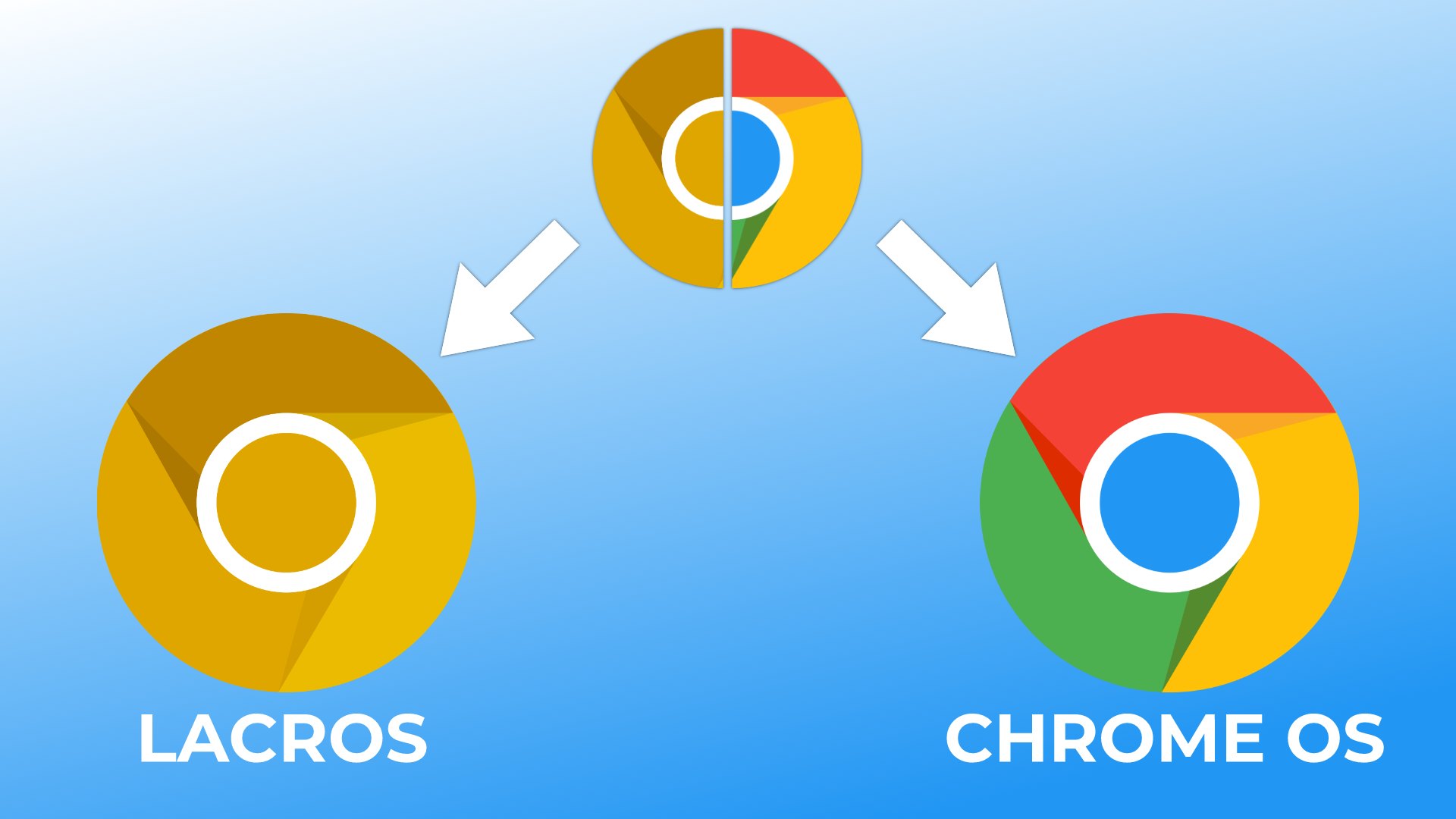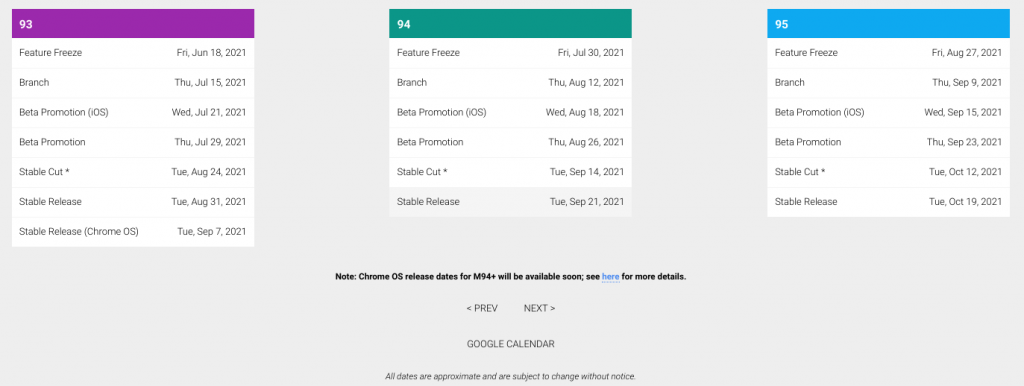
We’ve been hearing more and more about LaCrOS in the past few weeks, and I think there’s a reason for that. You see, LaCrOS (Linux and Chrome OS, or a Linux version of Chrome running in Chrome OS) has been in the works for quite some time and even though we don’t have complete confirmation on what Google plans to do with it once completed, there are good reasons to think it is being developed with the idea that Chrome OS and the Chrome browser will cease to be a unified software moving forward. While we’ve posited that may be the case, it still hasn’t been 100% clear that Google will replace the existing Chrome browser on Chromebooks with a standalone, Linux-based version for all users. Instead, as we’ve considered, perhaps the plan is to put LaCrOS into play only when a device reaches the end of life. It’s a plausible scenario and one that could still happen, but I think a much more cohesive plan is in the works.
Back to the beginning
Let’s go back to the start of all this, shall we? About a year ago, work began on a project called LaCrOS that installed a unique, Linux-based version of Chrome in its own custom container on Chrome OS. When it first arrived, we were a bit confused exactly what it was and why it existed, but we had some thoughts. Perhaps this separate version of the Chrome browser could help to give older Chromebooks a new lease on life by allowing for Chrome security updates apart from standard Chrome OS updates. In one of the commits for the beginnings of the project, it was noted in the comments:
From what I understand, one of the motivations for LaCrOS is that it makes chrome-for-chromeos more like chrome for other systems, where we ship a binary for that os built like we (browser team) want, independent of the toolchain of the os.
via the Chromium Gerrit
This provided little clarification on when Chromebooks could expect this change. The comment above and the early commits we saw never made it clear whether or not LaCrOS was a full-blown replacement for all Chromebook or only the ones at the end of life.
Recent developements
More recently, however, a few things have transpired that make me feel very strongly that this entire LaCrOS effort will not only be for extending Chromebook lifespans, but for replacing Chrome on Chromebooks entirely. Consider this tweet by Sudar Pichai regarding his CR-48 – the original Chromebook. Why would he say this about a Chromebook that has been EOL for years at this point? LaCrOS, obviously.
Now, take that and add it to the recently announced 4-week update schedule for Chrome that was officially announced. From version 94 onward, Google has made it clear that Chrome will begin updating on a 4-week schedule versus the existing 6-week schedule that has been in place for 89 version of the browser up to this point. Why it this important and why does this have anything to do with Chrome splitting from Chrome OS? Well, when you look at the update schedule Google has publicly in place for both Chrome and Chrome OS, you see something quite strange with version 94.

See anything odd, there? First up, with every release up to 93, there is a line item for the Stable Release date for Chrome OS separate and distinct from Chrome. As a matter of fact, it is generally one week after. Yet, starting with 94 and the 4-week update schedule, the Chrome OS Stable release falls off the chart. Under the releases, we now see a little message that simply states, “Note: Chrome OS release dates for M94+ will be available soon; see here for more details.” That link takes you to the blog post where Google announced the upcoming 4-week update change and nothing else.
Think about it. If Google was set to just start updating Chromebooks on a 4-week schedule, they’d have left this update site alone and continued to push Chrome OS updates the week after Chrome updates. No changes would need to be made, here. However, it is clear that as Chrome 94 rolls out, things are going to change. Google isn’t making it 100% clear at this point, but the writing is on the wall. Chrome OS likely won’t be getting these 4-week updates and to keep Chrome on the same version across the board, they’ll need a way to update Chrome without a similar update pattern for Chrome OS. Sounds like LaCrOS to me!
The final clue
Finally, if the above logic wasn’t enough to convince you, news hit that there is language in the Chromium Repositories that clearly discusses a move that would make LaCrOS the primary browser on Chromebooks. The verbiage is clear and this is only added to the fact that PWA support is also being added to LaCrOS, giving it even more abilities to more-closely match what Chrome on Chrome OS is currently capable of.
Use Lacros-chrome as the primary web browser on Chrome OS. This flag is ignored if Lacros support is disabled.
Via the Chromium Gerrit
Is this an open-and-shut case? Not entirely, but it feels very clear at this point that LaCrOS is not only being prepped as a backup browser for older devices: it is being set up to be the primary browser on all Chromebooks moving forward. This makes sense on so many levels and if they pull it off seamlessly, it will be a triumph for Chromebooks and for the containers that run on them. I’ve tested LaCrOS on the most recent builds of Chrome OS, and I can attest that apart from a few hiccups, the experience is almost completely seamless. It is tough to tell LaCrOS from the standard Chrome OS Chrome browser even at this point, and there’s still months left before 94 rolls out.
Once all the features are in place and ready, Google can simply swap in LaCrOS and users won’t really know the difference. The big win is that the Chrome team can focus on Chrome and it’s 4-week updates, keeping security buttoned up, and not be worried with the oddities that exist in keeping a web browser and operating system on the same page all the time.
This also will free up the Chrome OS team to focus on features and perhaps give them longer time frames to clean things up between updates. Imagine if Chrome OS updates happened every 8 weeks instead of 4 or 6 and imagine how 14 more days of development might help the team refine things on an OS level without worrying about what the Chrome browser needs. And then, as an added bonus, once your Chromebook stops getting OS updates, those Chrome browser updates can continue to flow in, keeping your Chromebook safe and secure regardless of the OS updates. It’s a big move and an important one, and I’m predicting it will be happening this fall with the release of Chrome 94. Stay tuned as we continue to track the rapid development of LaCrOS. It could end up being one of the most pivotal moves for Chromebooks yet!

Leave a Reply
You must be logged in to post a comment.